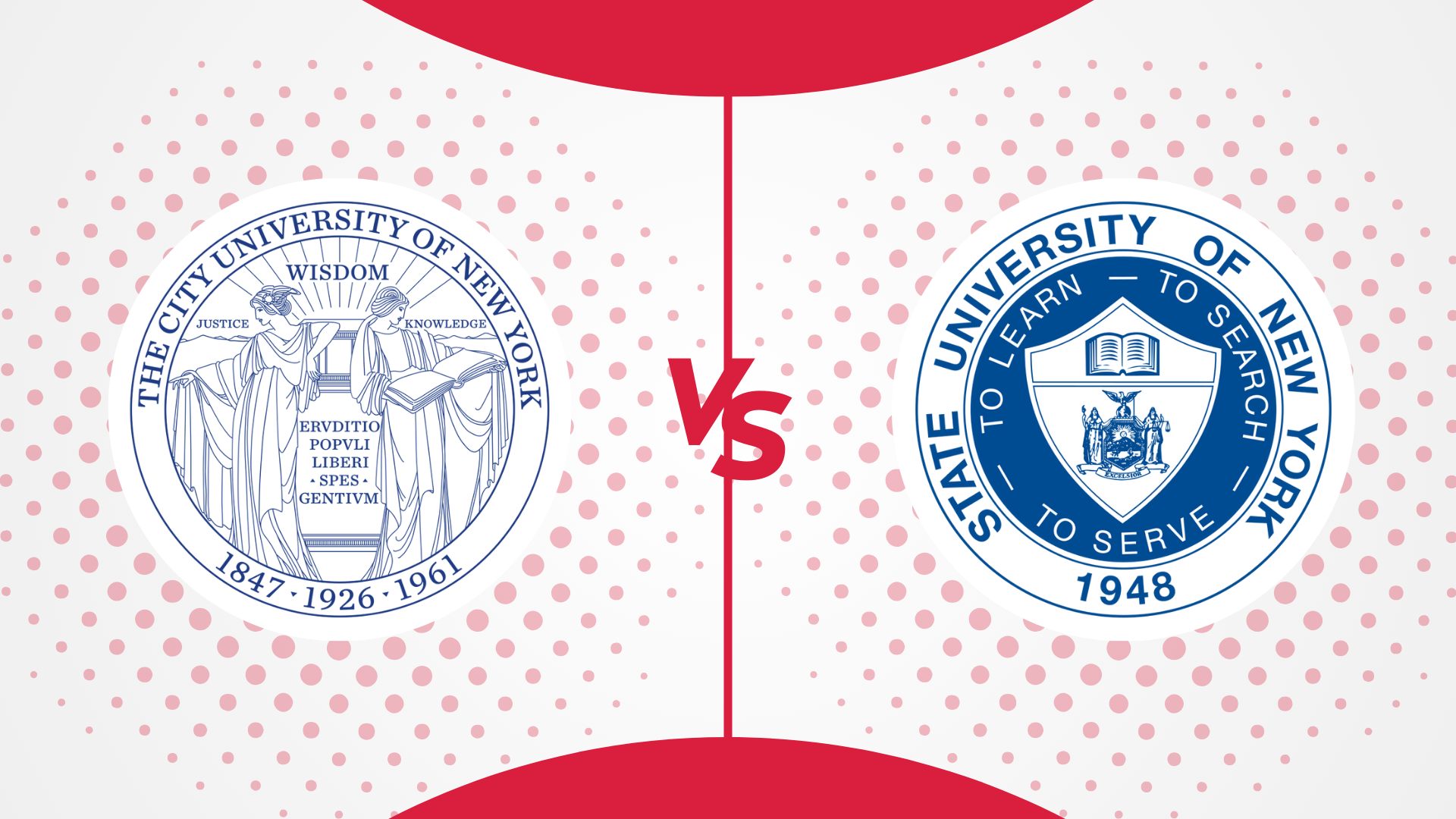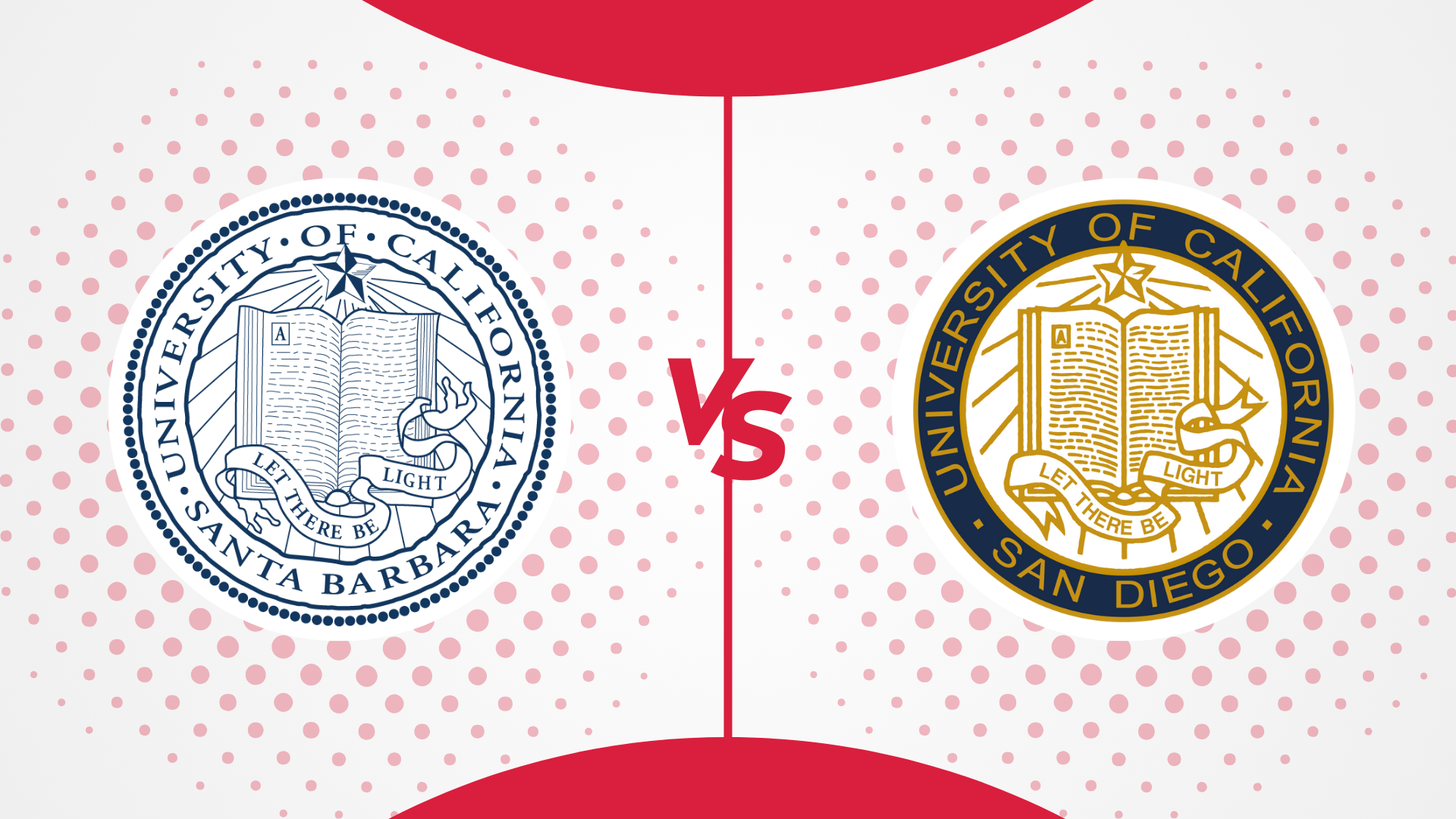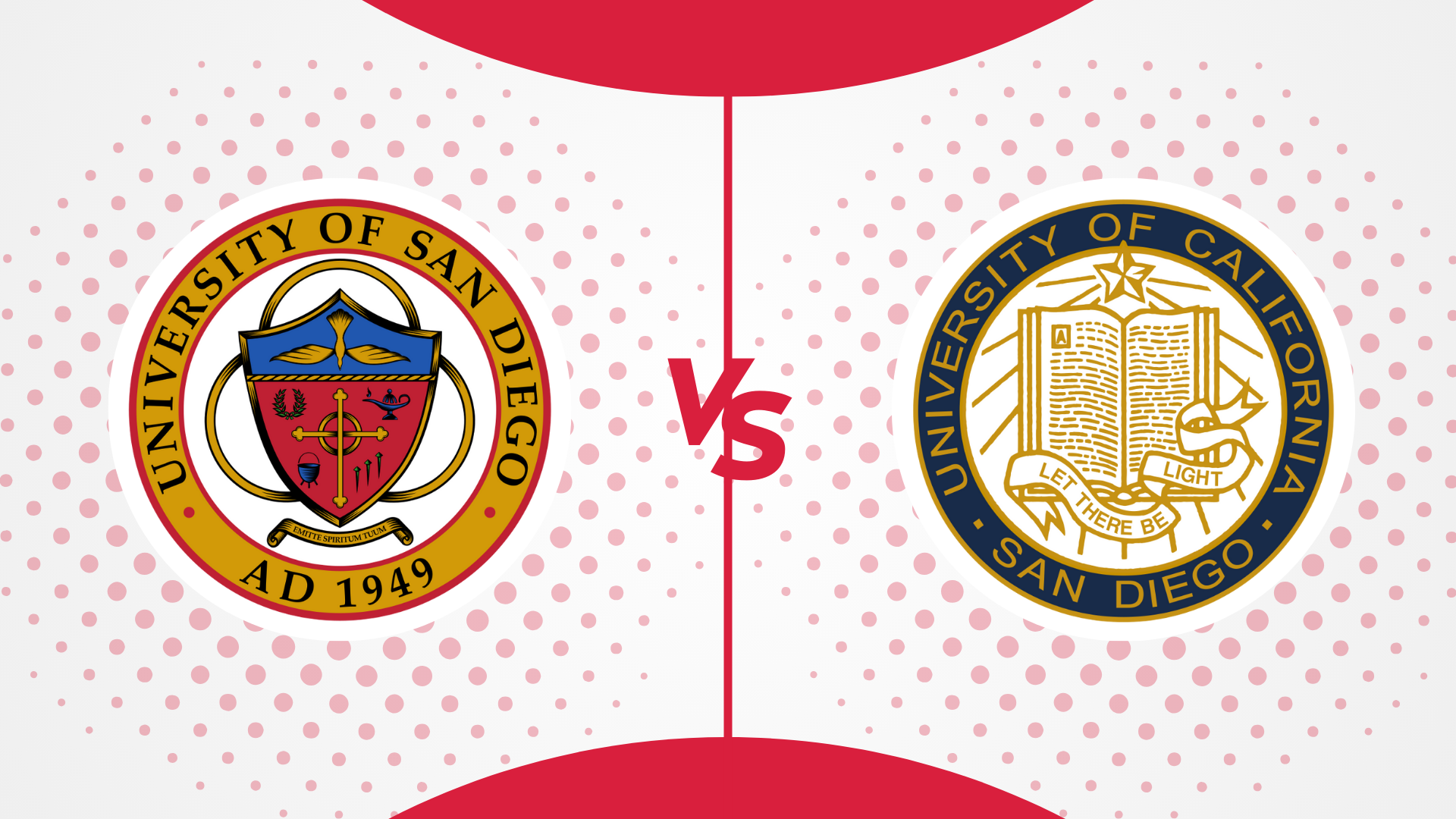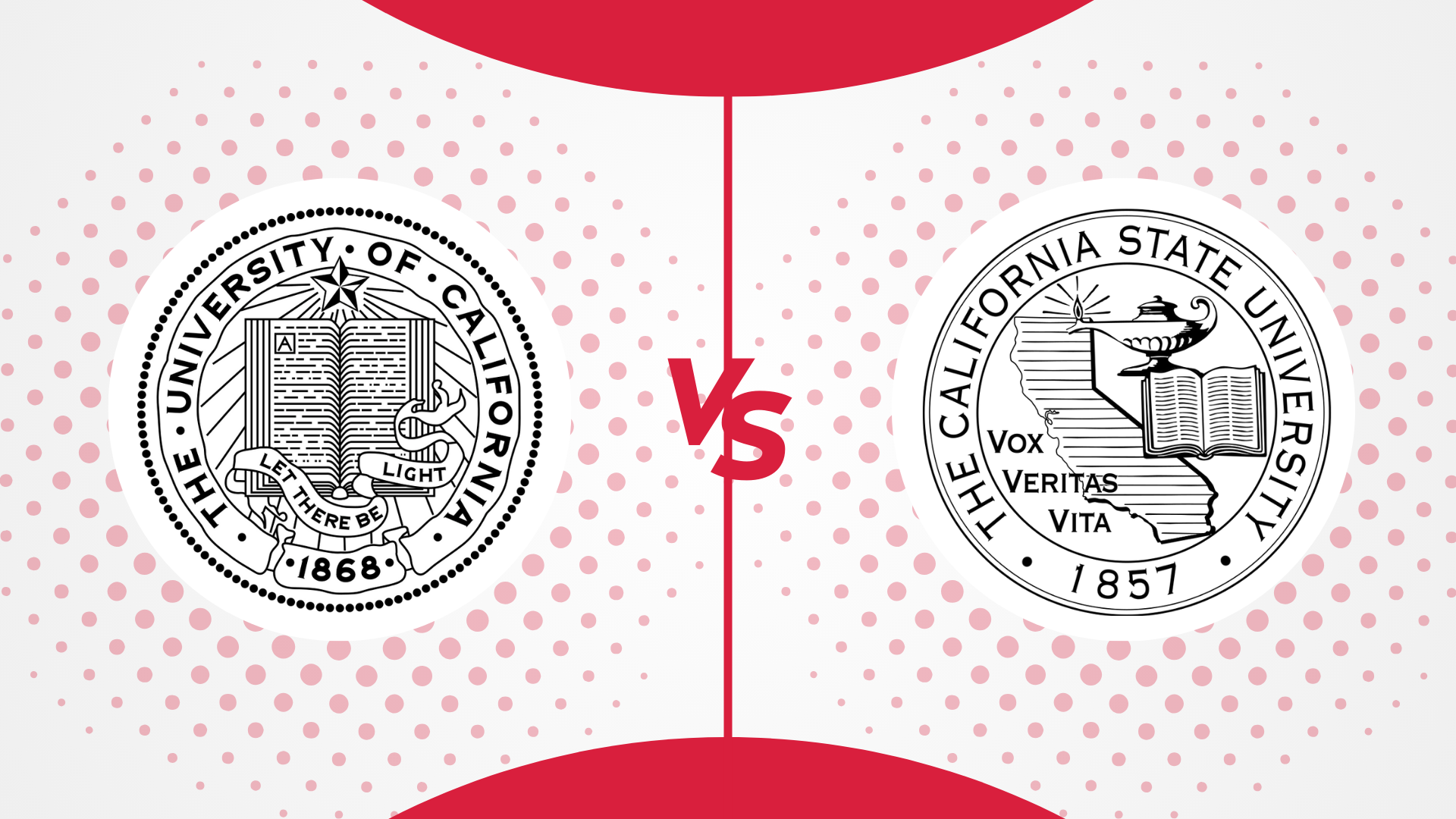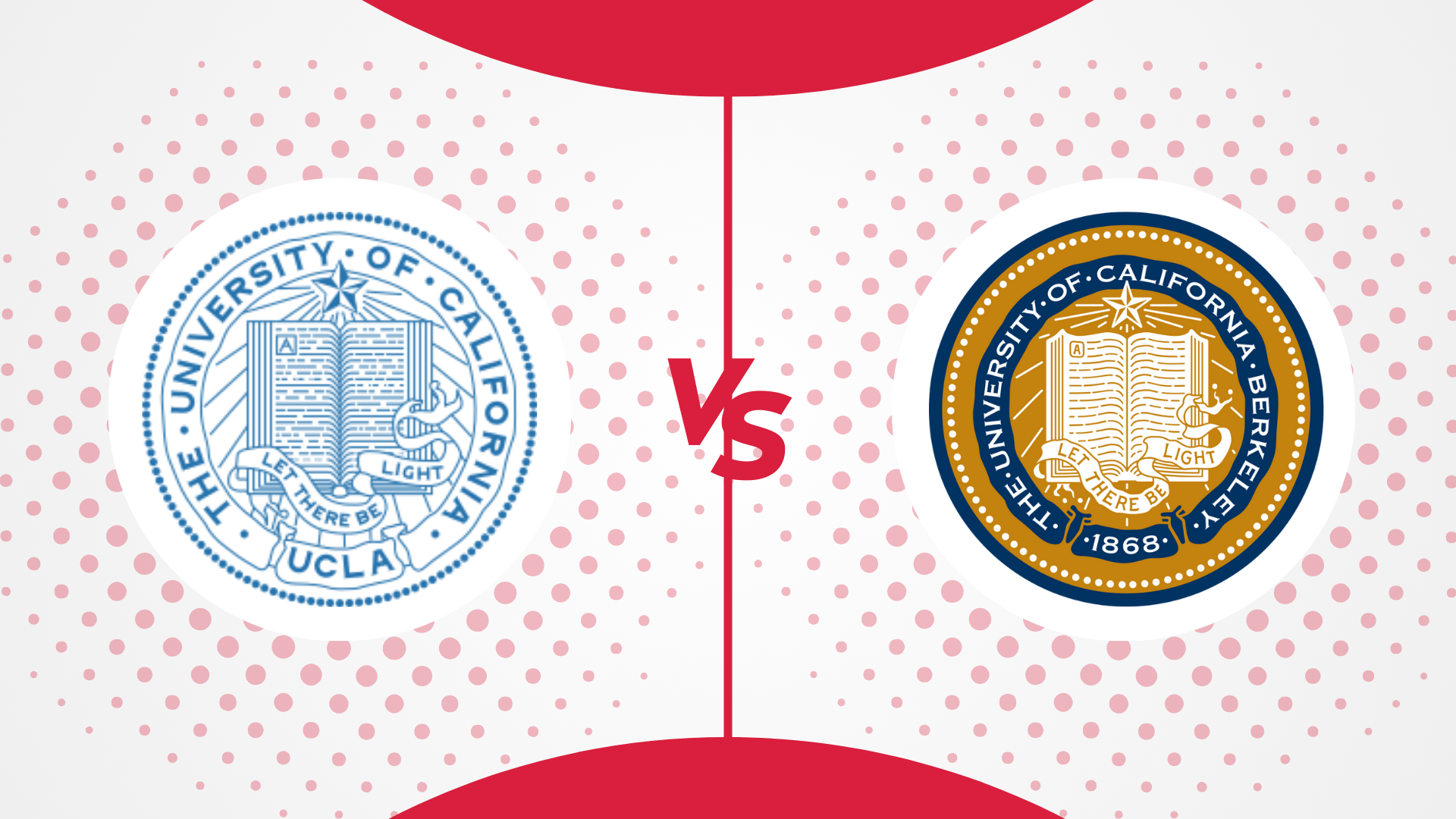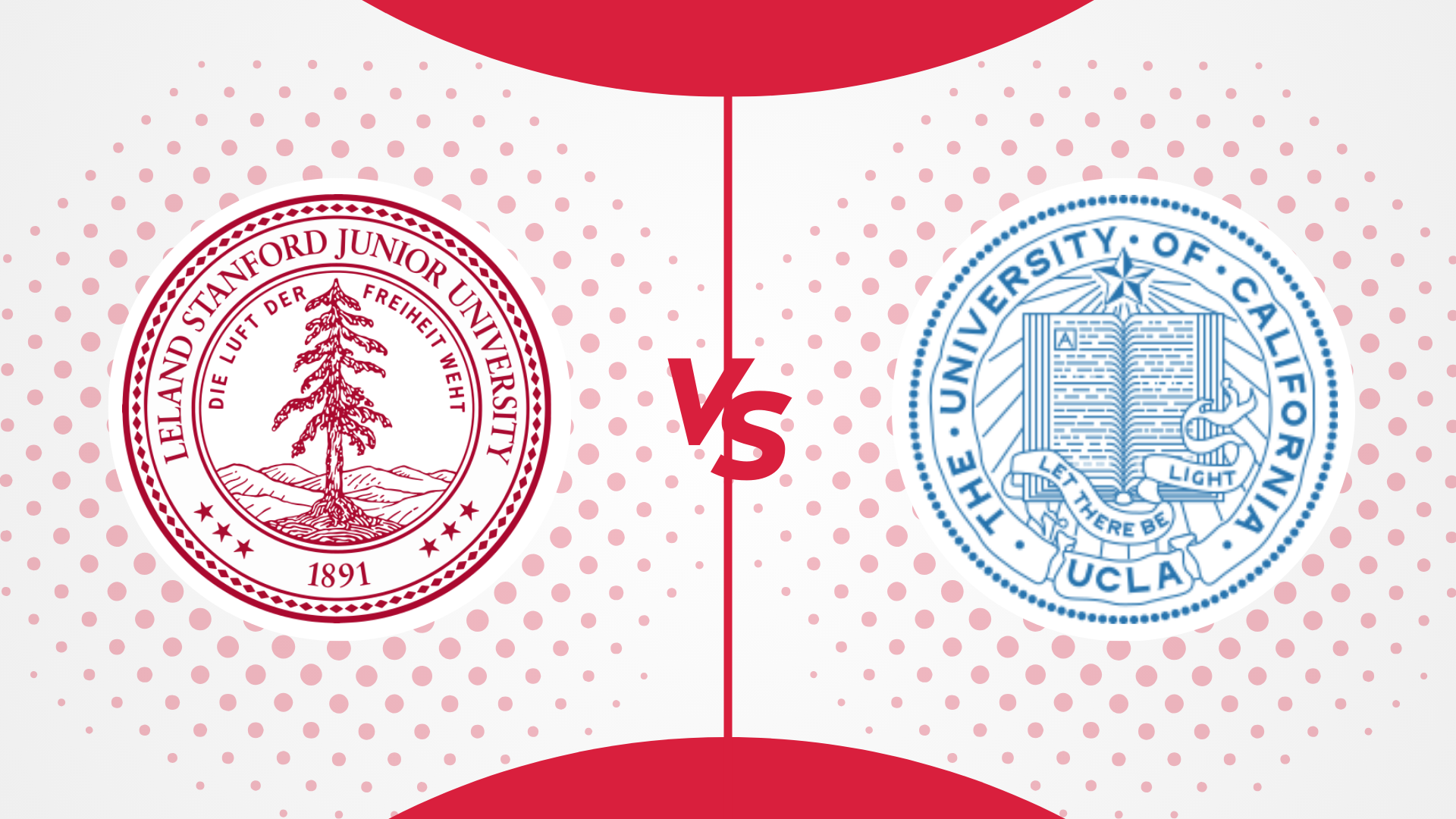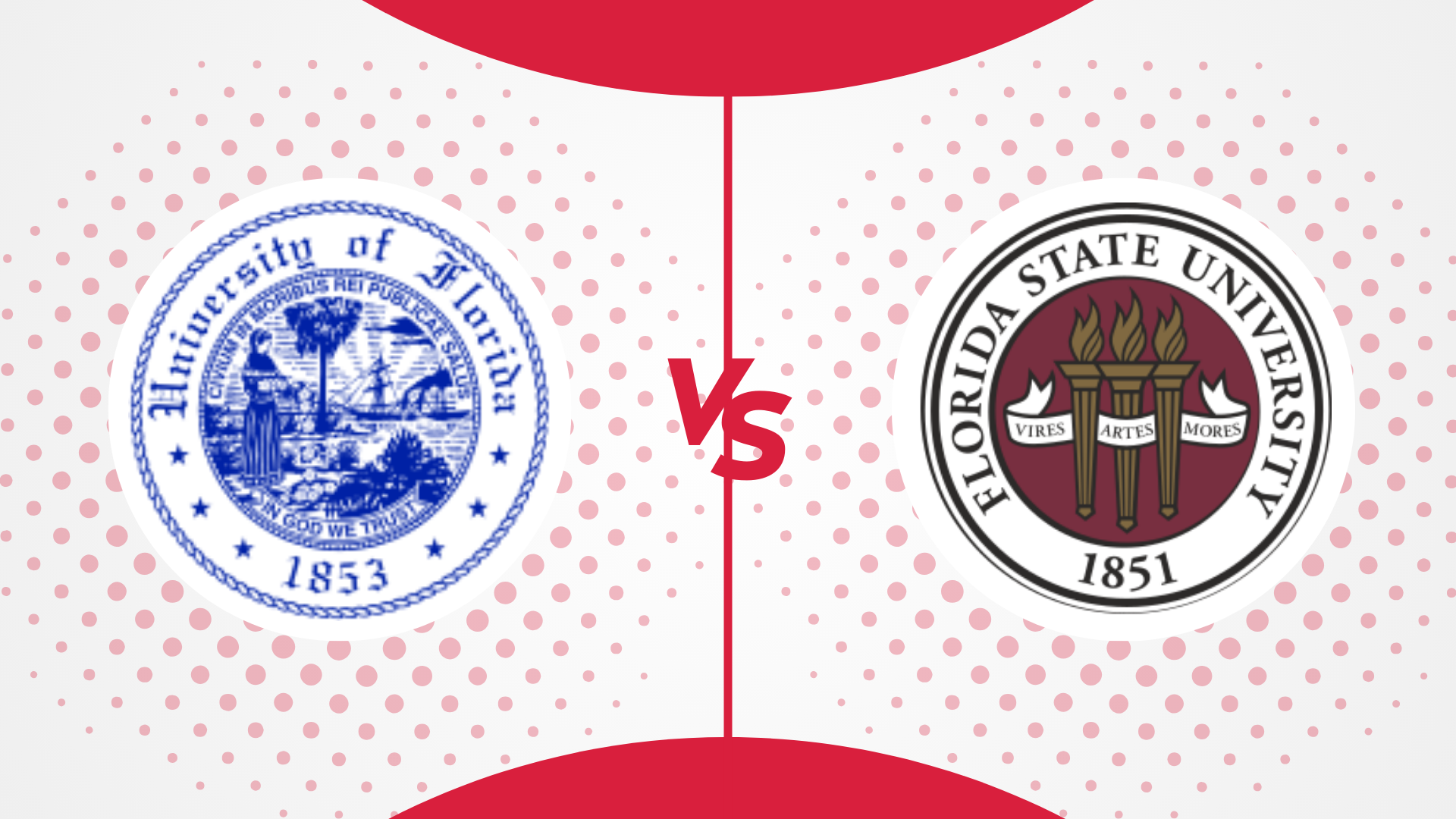Thinking about the University of Glasgow vs the University of Edinburgh debate? If you want to study in the United Kingdom, these two universities in Scotland could be on your list. We look at the two here in depth.
These world-class universities offer distinct experiences, from campus life to academic focus and research opportunities. In this in-depth guide, we compare the University of Glasgow and the University of Edinburgh across various aspects, including academics, campus life, tuition costs, and career prospects, to help you make an informed decision. So, here’s a breakdown of Glasgow vs. Edinburgh.
Overview of University of Glasgow and University of Edinburgh

The University of Edinburgh and the University of Glasgow are two of the most renowned universities in Scotland, with their unique global reputations. Edinburgh University, situated in the Scottish capital, provides a more politically and culturally diverse atmosphere. In contrast, Glasgow University is located in Scotland’s largest city (by population) and offers a more laid-back and artsy environment.
When it comes to rankings and global reputation, the University of Edinburgh surpasses Glasgow by most metrics. It ranks higher, is more globally renowned, and is considered one of the best universities in the world, often compared to the Ivy League in the US.
The University of Glasgow is not far behind. While it ranks marginally lower when compared to Edinburgh, it makes up for it in various other aspects. For instance, Glasgow is less expensive when compared to Edinburgh. Furthermore, Glasgow has a better reputation for undergraduate degrees and better student life than Edinburgh, which places greater importance on research and postgraduate degrees.
Both universities excel in various academic areas, but Edinburgh ranks higher in certain areas and subjects such as medicine, computer science, and humanities. Glasgow, however, shines in areas like engineering and life sciences. The choice between these institutions will depend on personal preferences for location, academic focus, and student experience.
Brief History and Background
University of Glasgow
Established in 1451, the University of Glasgow is the fourth-oldest in the English-speaking world after the University of Oxford, the University of Cambridge, and the University of St Andrews. Located centrally in Glasgow, the institution is known for its neo-gothic architecture and strong emphasis on research and innovation. Ranked consistently among the top 100 universities in the world, Glasgow is a member of the Russell Group, a collection of leading UK research institutions.
Presently home to over 30,000 students, the University of Glasgow is categorised into 4 main academic colleges, which are further classified into schools and departments based on disciplines. Its legacy and history give it a global reputation, especially in physiology, anatomy, life sciences, chemistry, bioengineering, and economics, among other fields. Glasgow stands 14th in the country and 78th in the world, according to the Guardian League tables and QS WUR 2025, respectively.
University of Edinburgh
The University of Edinburgh was founded in 1583 and is one of the world’s most prestigious academic institutions. It is the youngest of Scotland’s four ancient universities. Following the Scottish Enlightenment of the 18th century, it rose to prominence in critical thinking and academia. Since its inception, it has produced Nobel laureates, Olympic champions, space explorers, and Prime Ministers. Charles Darwin and Alexander Graham Bell are among its distinguished alumni.
Located in the Scottish capital and central to Edinburgh’s political, cultural and academic life. Edinburgh consistently ranks among the top 50 universities worldwide and is a League of European Research Universities (LERU) member. With three main colleges that host over 20 different schools, the University of Edinburgh ranks 27th in the world and 15th in the country, according to QS World University Rankings and Guardian table 2025 respectively.
Key Statistics and Rankings
The table below highlights the essential ranks and other details between Glasgow University and Edinburgh University.
| Category | University of Glasgow | University of Edinburgh |
| Nickname | UofG | Edin |
| U.S. News National Rank 2025 | 61 | 27 |
| QS World University Rank 2025 | 78 | 27 |
| Undergraduate Student Body | 21,851 | 29,765 |
| Graduate Student Body | 11,907 | 19,975 |
| % of International Enrollment | ~ 38.6% | Around 49% |
| Average Acceptance Rate | Around 22% for international students | 12 – 40%, depending on the course |
| Student Staff Ratio (Source: The Complete University Guide League Table, 2025) | 14.4:1 | 12.3 |
| Number of Undergraduate Programs | 700+ degrees in over 130 disciplines | 300+ |
| Number of Graduate Programs | 300+ | 500+ |
| Number of Athletic Teams | 50+ sports clubs with over 5,000 members | 200+ |
| Number of Clubs and Student Organisations | 300+ | 350+ |
| Colours | University Blue | Red and Blue |
University of Glasgow vs University of Edinburgh: Academic Comparison

Both Edinburgh and Glasgow are two of the top universities in the UK, offering a wide range of programs for prospective students. Glasgow University has developed strong ties with industry and has emphasised innovation and entrepreneurship. Edinburgh University is a research-intensive institution with pioneering work in AI, informatics, and biological sciences. The university is also home to several world-renowned research centres and institutes.
While both have the history and the legacy of being two of the four ancient universities in Scotland, the University Edinburgh ranks higher, and is more globally renowned when compared to Glasgow according to most metrics.
In this section, we will examine both Edinburgh and Glasgow and analyse their undergraduate and graduate courses, choices and flexibility, ranking, degrees and class sizes, academic calendars, research facilities, and budgets, all of which can become essential factors in deciding between the two universities.
Undergraduate Programs
Program Options and Reputation:
While Glasgow and Edinburgh are world-class leading universities, their academic offerings differ significantly. Edinburgh has over 300 bachelor’s programmes to choose from, whereas Glasgow offers over 700 degrees across 130 fields of study.
The choice of major is made while applying to the university, both in the case of Edinburgh and Glasgow. This is typical of most UK universities, unlike the United States, where majors are typically declared in the sophomore year. Some universities allow you to switch majors depending on seat availability, but the process is akin to reapplying to a new program. That said, a significant advantage of getting an undergrad degree from a Scottish university, unlike the rest of the United Kingdom, is that a bachelor’s degree is awarded in 4 years. The first two years typically focus on the fundamentals required for your choice of major.
When it comes to ranking and reputation, both Glasgow and Edinburgh have histories that span a few centuries. That said, the University of Edinburgh ranks 27th in the world, while Glasgow ranks 78th according to QS World University Rankings 2025.
Focus Areas:
The University of Edinburgh is world renowned for its programs in anatomy, medicine, veterinary medicine, arts and humanities, artificial intelligence, and engineering, while Glasgow is one of the best universities for the study of anatomy, life sciences and medicine, law, chemistry, computer science, nursing, and sports-related subjects. When specifically looking at undergraduate education, despite the rankings, Glasgow has a better reputation, known for focusing on its undergrad programs and providing a better student life, while Edinburgh is known for giving more importance to research and higher degrees.
Degrees Offered:
Both Edinburgh and Glasgow offer a few BA or BSc (Bachelor of Arts or Bachelor of Science) degrees. More importantly, in all the four ancient universities of Scotland, an Honours level undergraduate degree in the Arts is called a Master of Arts (MA). It should not be confused with the Master of Arts offered by some universities in England, which refers to a postgraduate qualification. At the postgraduate level, most programs result in an MSc degree at Glasgow and Edinburgh.
Standardised Test Scores and Other Admission Criteria:
The University and Colleges Admission Services (UCAS) seems to be one of the most prominent advantages for undergraduate students applying to study in the United Kingdom. UCAS allows prospective undergraduate students to apply to five different universities with a single application. The entry requirements for admission to most universities are GCSE (UK High School) scores, A levels, or IB Scores.
In comparing admission criteria for UoFG Vs Edin, admission requirements are competitive at both institutions, but Edinburgh typically has a slightly lower acceptance rate, reflecting its higher ranking. Both universities examine academic performance, standardised test scores (such as the SAT/ACT or A-levels), and extracurricular involvement.
Core Curriculum:
Unlike universities in the USA, institutions in the United Kingdom do not have a general/ common curriculum at the undergraduate level. The Universities in the UK believe that undergraduate students already have a basic, functional understanding of the foundations before entering university. If unprepared, students typically apply to a foundation year before applying for a bachelor’s degree in the United Kingdom.
Class Sizes:
Edinburgh offers a slightly more intimate student-to-faculty ratio of 12:1, compared to Glasgow’s 14:1, which may provide more personalised learning opportunities. That said, UofG also has fewer undergraduate students when compared to the University of Edinburgh.
Top Majors:
Students who are considering Glasgow University or Edinburgh University as their study destination have various undergraduate options available. The table below highlights the top undergraduate programs available at these premier institutions.
| University of Glasgow | University of Edinburgh |
|
|
Graduate Programs
Graduate Program Options: Applicants for Master’s programs in the UK should be aware of three essential points.
- Graduate or Master’s courses in the UK (including Scotland) typically last one year, unlike the two-year programs elsewhere
- Before filing applications, students must check if their courses are taught master’s or research master’s courses. As their nomenclature suggests, the classes taught primarily consist of coursework, lectures, and minimal research work. Contrary to this, a Research master’s will emphasise research work with a single project and minimal coursework. Research Master’s programs can be considered as Mini PhDs.
- As mentioned earlier while discussing undergraduate degrees, an “MA” from Edinburgh or Glasgow University is an honours bachelor’s degree. Most postgraduate degrees across disciplines are awarded an MSc or an equivalent.
The University of Edinburgh offers over 500 postgraduate programs, while Glasgow University offers 300+ options. Glasgow is known for its master’s programs in aerospace engineering, biotechnology and management, business analytics and data science, international finance, medicine, economics, and computer science specialisations among other disciplines. Edinburgh provides humanities, social sciences, engineering, health sciences, and more programs. Both institutions hold strong global standings, making them attractive options for international students.
It is important to note that when it comes to their law schools, both offer programs in Scots law, Common law, and international law.
In terms of the graduate student body, Glasgow is smaller than Edinburgh. While Glasgow has about 12,000 grad students, the University of Edinburgh’s graduate population is around 20,000.
College Admissions: Admissions at the University of Edinburgh and the University of Glasgow are both pretty competitive. The acceptance percentage is a more accurate representation of undergraduate admissions, while at the graduate level, these numbers can differ across departments.
The general criteria for the Master’s program for both universities have been detailed out below:
- An upper second-class honours degree from a recognised university,
- Personal essays, letters of recommendation, audition tapes and portfolios (if required)
- Standardised English language tests are mandatory for international students.
- Standardised graduate tests (GMAT/ GRE scores) are required for some programs, especially when applying for business and management-related programs in both universities.
- Some postgraduate programs or professional programs might also require you to have some work experience.
Top Graduate Programs:
| University of Glasgow | University of Edinburgh |
|
|
Overall and Subject Rankings
| Ranking Source | The University of Glasgow | The University of Edinburgh |
| U.S. News Global Universities 2024 – 25 | 61 | 38 |
| Times Higher Education WUR | 87 | 18 |
| QS World University Ranking 2025 | 78 | 27 |
| Guardian UK National Ranking 2025 | 14 | 15 |
| Global Subject Ranking (Source: QS Subject Rank 2024) | |
| Glasgow | Edinburgh |
|
|
An analysis of the university and subject-specific rankings shows that Edinburgh University ranks higher on most scales. However, it is important to note that both these universities are part of the prestigious Russell Group and have unique programs and qualities for students. Though Edinburgh typically ranks higher globally, the University of Glasgow excels in subject-specific areas such as veterinary sciences and engineering.
Constituent Schools
The University of Glasgow is divided into four faculties with 25 departments.
- College of Arts and Humanities
- College of Science and Engineering
- College of Medical, Veterinary and Life Sciences
- College of Social Sciences
The University of Edinburgh comprises three colleges which collectively host 21 schools.
- College of Arts, Humanities and Social Sciences
- Business School
- School of Divinity
- School of Economics
- Edinburgh College of Art
- Moray House School of Education and Sport
- School of Health in Social Science
- School of History, Classics and Archaeology
- School of Law
- School of Literatures, Languages and Cultures
- School of Philosophy, Psychology and Language Sciences
- School of Social and Political Science
- Centre for Open Learning
- College of Science and Engineering
- School of Biological Sciences
- School of Chemistry
- School of Engineering
- School of GeoSciences
- School of Informatics
- School of Mathematics
- School of Physics and Astronomy
- College of Medicine and Veterinary Medicine
- Edinburgh Medical School
- Royal (Dick) School of Veterinary Studies
Research Opportunities
UFoG and Edinburgh University are members of the prestigious Russell Group of Institutions in the United Kingdom. The Russell Group comprises 24 world-class research-intensive public universities known for their academic rigour, excellence, and connections to their local communities.
The Research Excellence Framework 2021 (REF) has recognised the University of Glasgow for its world-leading research and the positive impact it has on society. The results highlight Glasgow’s position as a world-changing university producing global and national research. The submission also highlighted Glasgow’s commitment to making a difference beyond academia. Some of the world-changing research to come from Glasgow include the Kelvin scale, the use of antiseptics in surgery and the discovery of 3 noble gases in the periodic table.
Similarly, Edinburgh University is a member of several research-intensive institutions, such as the Coimbra Group, the League of European Research Universities, the Russell Group, Una Europa, and Universitas 21. The university’s current innovation strategy focuses on tackling three key areas – health and care, digital and AI harnessing of data, and the climate crisis
Both universities provide numerous opportunities for students to participate in research at all levels, allowing them to gain valuable practical experience. They often work together, along with the University of St Andrews to foster a combined framework for research leadership and a spirit of collaboration.
Key Dates for Application
Here are the key dates for graduate and postgraduate program applications, as well as scholarship deadlines for the University of Glasgow and the University of Edinburgh for the current academic year. Prospective students should verify these on university websites for specific programs.
| Important Dates | Glasgow | University of Edinburgh |
| UCAS Applications Opens | 3 September 2024 | September 2024 |
| UCAS Application Deadline | 29 January 2025 | 29 January 2025 |
| Course Begins | August/ September 2025 | August/ September 2025 |
| Master’s Application Deadline | Multiple rounds UK Deadline: 22 Aug 2025 International: Dec 2025 |
Typically, three rounds in December, March and May |
| Decision Posted in | UG: March-May 2025 PG: in 4 – 6 weeks |
Latest by May 2025 |
| Deadline to accept the offer of admission | Typically, within 4 weeks of receiving the offer | June 2025 |
| Average Undergrad Acceptance Rate | ~ 22% for international students | 12 – 40%, depending on the course |
Some important points to be considered when applying to Edinburgh or Glasgow:
- Unlike American universities, most UK universities do not have Early Action or Early Admission Decision pathways.
- While most universities accept master’s applications as long as seats are available, applications typically open in October of the previous year and it is recommended that you apply at the earliest, especially if you require a student visa.
- All undergraduate applications for both Glasgow and Edinburgh go through University and Colleges Admissions Services or UCAS. The advantage is that you can apply for up to five colleges with just one application. The application fee is about £30.
- There is no common application portal for graduate-level applications. They can be applied directly from the university/ department websites.
- Courses like nursing, dentistry and medicine can have deadlines as early as October of the previous year.
Academic Calendar
Both Glasgow and Edinburgh follow a semester system where the academic year is divided into two terms. The first semester typically extends from September to December and the second from January to April/ May. The Glasgow calendar is not to be confused with the one used by Glasgow Caledonian University, which uses trimesters.
Glasgow vs Edinburgh: Campus Life and Environment

In the debate of the University of Glasgow vs the University of Edinburgh, a decision cannot be made solely on academics alone. From their campus size to the culture, Glasgow and Edinburgh offer varied experiences to their students. Let us take a look at some of the other factors that can make a prospective student prefer Edinburgh to UofG or the other way around.
Location
Glasgow is a university town in Scotland, about 40 miles from the capital city of Edinburgh. In addition to the University of Glasgow, it is also home to the University of Strathclyde, Glasgow Caledonian University, and Glasgow School of Art. One of the top student cities in the UK and Europe, it is known for its vibrant music and arts scene, night life, and parks. It is Scotland’s largest city by population and offers students a mix of historical architecture and modern amenities.
In contrast, the University of Edinburgh is situated in the heart of Scotland’s capital. Edinburgh is famous for its medieval Old Town, the Georgian New Town, and the annual Edinburgh Festival Fringe. The university’s main campus is centred around George Square and the Old College, featuring beautiful historic buildings. It is known for its international connections and status as Scotland’s political and cultural heart.
As a capital city, Edinburgh has more opportunities, both professionally and socially, but is also comparably more expensive when it comes to the cost of living. Glasgow is known for its more authentic Scottish charm.
Campus Life
University of Glasgow: The University of Glasgow is over 400 acres spread across three main campuses, not including its 4 transnational campuses in Singapore and China.
- Gilmorehill Campus – Based in the West End of Glasgow, Gilmorehill is home to the majority of the university’s teaching and research facilities. It also houses the iconic bell tower, extensive sports facilities, two student unions, a museum and art gallery, an enormous library over 12 floors, and more than 300 clubs and societies.
- Garscube Campus – Located about 4 miles from the main Gilmorehill campus, the Garscube campus is home to the School of Veterinary Medicine, the Small Animal Hospital, the Glasgow Equine Hospital & Practice, the Wolfson Wohl Cancer Research Centre, and the Beatson Institute for Cancer Research. It is also home to the Wolfson Hall of Residence and the Garscube Sports Complex.
- Dumfries Campus – Located about 80 miles from the other two campuses, Dumfries is home to the School of Social & Environmental Sustainability.
University of Edinburgh: The university is mainly located in the city’s historic Old Town and New Town areas, with its main campus around George Square. The university has 5 campuses spread throughout the city. The campus includes a combination of historic buildings, such as the Old College and McEwan Hall, alongside modern amenities, creating a striking balance.
The university offers comprehensive facilities, including libraries, study spaces, laboratories, and art studios. The Main Library is a significant student resource, with extensive collections and study areas. Edinburgh’s campus is also dotted with green spaces, including the Meadows and Bristo Square, providing tranquil spots for students to relax or study outdoors.
The Edinburgh University campus is a UNESCO World Heritage site, rich in history and culture, with numerous festivals, galleries, and theatres that enhance the student experience. Despite being a large university, Edinburgh fosters a strong community among students, supported by various social and academic initiatives.
Student Activities and Organisations
University of Glasgow: The University of Glasgow houses over 50 sports clubs with over 5,000 members across its three campuses. The student unions also manage over 300 clubs and student organisations to cater to varied extracurricular interests of students. The university has several bodies dedicated to student representation, welfare, and entertainment. Glasgow Uni has two independent student unions, each with its own set of roles and traditions, a sports association and a student representative council.
University of Edinburgh: The University of Edinburgh has a rich cultural and historical British backdrop, including numerous festivals, art galleries, and theatres. The city offers many accommodations, and the university provides comprehensive support services. With over 300 student-led societies, students can pursue various activities and interests. The Edinburgh University Students’ Association (EUSA) supports these forums and organises events to improve student life. The university also has a vibrant sports culture and frequently hosts social events, cultural festivals, and academic workshops to foster community and engagement.
Housing and Accommodation
University of Glasgow students are not divided into residential colleges like those in Durham or the University of Oxford and Cambridge. When it comes to residences, the university manages, either on its own, or in partnership with other services, about 15 apartments/ flats/ residence halls that can accommodate around 5,000 students. Most rooms are typically shared between 2 students, with larger houses accommodating as many as 5 students. The university also has access to a minimal number of family accommodations, typically accessible to postgraduate students. Rent typically costs anywhere between £155 and £225 per week, depending on the amenities.
The University of Edinburgh also owns over 60 apartments/ residence halls that provide single or twin sharing accommodation facilities to its students. The yearly cost of housing typically ranges from £3,000 to £7,000, depending on location, number of occupants, and catering facilities. Every student living outside the City of Edinburgh is guaranteed a place to live in University-managed accommodation as long as they apply by the Accommodation Guarantee deadline of 31 July.
University of Edinburgh vs Glasgow: Financial Aspects

When comparing Glasgow University vs Edinburgh University, costs, academics, and campus facilities are all essential considerations. Both are public universities, which are typically less expensive than private institutions.
That said, within the UK, only England, Wales and Northern Ireland have three-year bachelor’s degrees. Most undergraduate degrees in Scotland take 4 years to complete, similar to those in the United States, Canada, Australia, and New Zealand.
Both Edinburgh and Glasgow have extensive options for financial aid, for both home and international students. It is important to look into scholarships and bursaries allocated for specific colleges/ departments to choose the most suitable option.
| Annual Rates | University of Glasgow | Edinburgh University |
| Tuition Fees (Bachelors) | Scotland – £1,820 UK students – £9,250 International – £23,000 – £32,000 |
Scotland – £1,820 UK – £9,250 International – £28,000 – £38,000 |
| Tuition Fees (Master’s) | UK: About £13,000 International: £30,000 – £35,000 |
UK – £13,000 – £18,000 International: £30,000 – £50,000 |
| MBA Tuition | £30,000 | £43,300 |
| Food | About £3,000 | About £2,600 |
| Off-Campus Housing | £6,000 – £16,000 | £6,000 – £8,000 |
| Housing (On-Campus) | £5,300 – £9,000 | £3,000 – £7,000 |
| Types of Financial Aid | Scholarships and bursaries awarded based on merit or financial need. Varies with departments/ schools. | 1. University Scholarships 2. Access Awards 3. Edinburgh Scholarships 4. Bursaries |
| International Student Scholarships | Most bursaries are open only to home students. Overseas students can apply for various department specific scholarships that are awarded based on merit, or can also apply for external scholarships. | |
Here are a few important points to be kept in mind.
- The tuition rates are for an academic year composed of two semesters and the typical course load. Choosing extra courses/ summer programs will add to these amounts.
- The tuition fee varies, if you are doing a Placement Year or a Study Abroad year.
- The tuition fee amounts in the table are indicative of only the cost of attendance. It does not include books, club fees, and other expenses. International students can also avail the benefits of the NHS by paying a surcharge of £470 per year.
- As mentioned earlier, it is important to research into scholarships made available for specific programs/ colleges. Both these UK universities offer financial aid based both on academic merit and performance in sports. The need-based financial aid is called a bursary and is open to both home and overseas students.
- Besides the university funded scholarships, international students can look into the British Council Scholarships, GREAT scholarships, Chevening, the Charles Wallace Trust, and the Commonwealth Scholarship options.
University of Glasgow vs Edinburgh: Career Prospects and Alumni Network

The career support provided by universities can significantly influence post-graduation success. Both universities enjoy high graduate employability rates, with many students securing jobs within six months of graduation. The Guardian League Table scores both Edinburgh and Glasgow with 86 on a scale of 100 when it comes to career after 15 months of graduation. According to the Complete University Guide, the graduate prospect outcome of being successful is also about 83% for both Edinburgh and Glasgow graduates.
Notable Alumni
Both institutions boast a roster of distinguished alums, including Nobel laureates and influential figures in various fields, which enhances their global reputations.
Notable Alumni from the University of Glasgow
- Adam Smith, Father of modern economics
- Lord Kelvin, Mathematician and Physicist
- James Watt, Inventor known for his improvements to the steam engine
- AJ Cronin, Physician and Novelist
- Jocelyn Burnell, Astrophysicist
- Gerard Butler, Actor
- David Mcmillan, Chemist and Nobel laureate
Notable alumni from the University of Edinburgh include
- Charles Darwin, Naturalist
- Sir Walter Scott, Novelist and poet
- David Hume, Philosopher, Scottish Enlightenment
- James Clerk Maxwell, Physicist
- Alexander Graham Bell, Inventor and scientist
Career Services
From internships to employment opportunities, organisations and recruiters seek students and graduates of top notch institutions like Edinburgh and Glasgow. In both universities, the career centres for strategy and success assist their students to gain practical experience, build networks and communicate their aptitudes and skill sets to prospective employers. They also play an instrumental role in building leadership skills and specialised skills that are essential to a workplace.
In both universities, the career centre connects students to internship opportunities and prospective employers through seminars, job fairs, and numerous other on-campus events. Their goal is to clarify career aspirations, identify opportunities, and offer support at every stage of career development.
Both universities also have options for placement year and apprenticeships wherein students can gain practical experience either through summer internships or year-long placements.
University of Glasgow vs University of Edinburgh: Conclusion

The University of Glasgow and the University of Edinburgh are world-class institutions with rich histories, excellent academic programs, and solid global reputations. While Glasgow offers a more relaxed, artsy atmosphere with a strong focus on innovation, Edinburgh is steeped in political and cultural history, offering strong connections in research and public service. Ultimately, the choice comes from personal preference and academic focus, as both universities provide excellent student opportunities. Here is a quick summary of how these two world class institutions stand apart.
- While both are ancient universities, Edinburgh ranks higher than Glasgow according to most metrics.
- They both have niche areas. Edinburgh has a better reputation for humanities, medicine and veterinary sciences, computer and AI, and some of its engineering programs while Glasgow is renowned for its programs in medicine, accounting and finance, and bio-engineering related programs.
- Like Princeton in the United States, Glasgow has a better reputation for undergraduate programs, giving a lot of importance while Edinburgh focuses more on postgraduate/ research.
- Both of them are members of the prestigious Russell Group and are research intensive universities.
- Both universities offer highly subsidised rates for Scottish nationals and marginally less subsidised rates for UK nationals. For international students, Edinburgh is more expensive when compared to Glasgow, both in terms of tuition and costs of living.
- Both universities also offer various options for scholarships and accommodation for both home and international students.
- Edinburgh, as a capital city, is better for networking, socialising, and future career prospects but it is more expensive than living in Glasgow.
Amid all the differences, it is important not to be swayed purely by rankings or their legacy. Considering their reputation, the ultimate call rests on whether the course curriculum and the learning outcomes meet your career plans. The most significant part of your research is to compare courses, syllabi, electives, faculty and research facilities of your preferred degree program, speak to current students, and then decide depending on which school better suits your needs.
We understand that becoming an international student can be very thrilling, but the prep and paperwork of it all can get overwhelming. The easiest way to reduce your stress is to sign up with TC Global.
We simplify international education, learning, and mobility through connecting students, universities, and a global community on a single platform where there are over 1000+ education providers and over 80,000+ courses.
Our platform enables students to study anywhere in the world in just a few steps. From search and discovery and finding the right course fit for you, to applications, visas and departure – we see you through it all.
To move forward with us, download our app or visit tcglobal.com and sign in to create an account on our student platform and onboard with us in quick, easy steps.! 🚀
Then simply set up a visit Calendly.com/tcglobal to pick a Relationships Team closest to you and choose a slot to meet with a Relationship Member. Be it University of Edinburgh vs University of Glasgow or any such debates, our experts will be with you every step of the way to help you decide.
Let’s shape your future together.
FAQs

1. Which university has a more robust academic reputation – Edinburgh or Glasgow?
The University of Glasgow is particularly well-regarded in health sciences, law, engineering, and humanities, making it a strong choice for students in these fields. The University of Edinburgh, meanwhile, has a broad reputation in international research and excels in fields like medicine, computer science, and social sciences. Both universities have global prestige, so the decision may hinge on the specific program and departmental strengths each offers.
2. What are the differences in campus environments?
The University of Glasgow has a centralised, historic campus in the West End of Glasgow, known for its vibrant cultural scene and accessible student amenities. By contrast, the University of Edinburgh spans multiple city campuses, combining historic and modern buildings. Edinburgh’s main George Square campus is central, while its King’s Buildings serve as a hub for science and engineering.
3. How does the cost of living compare?
Glasgow generally has a lower cost of living than Edinburgh, with more affordable housing and student expenses. Edinburgh is often considered one of the UK’s more expensive cities due to housing costs. This difference may be significant for students budgeting for accommodation, food, and entertainment. That said, neither city is as expensive as living in London.
4. Which city has better student life and entertainment options?
Glasgow is known for its active music and nightlife scene, offering various cultural and entertainment options that cater to student budgets. Edinburgh, famous for hosting international events like the Edinburgh Festival Fringe, has a unique artistic appeal with historic sites, theatres, and galleries. Both cities provide diverse social opportunities, with Glasgow leaning toward nightlife and Edinburgh offering year-round festivals and historical experiences.
5. How does career support compare?
The University of Glasgow offers employability programs with strong links to business and legal sectors, which support students in building professional networks. Edinburgh has a robust career service with global connections, which is especially beneficial for the tech and medical fields. Both universities provide dedicated support to help students transition from university to employment.
6. What types of scholarships are available?
Both Glasgow and Edinburgh offer a range of scholarships. Glasgow provides awards based on academic excellence and program-specific grants, while Edinburgh has competitive scholarships for merit and financial need and additional funding specifically for international students. Students are encouraged to explore the scholarship pages for both universities to understand the eligibility criteria and application processes.
You May Also Like
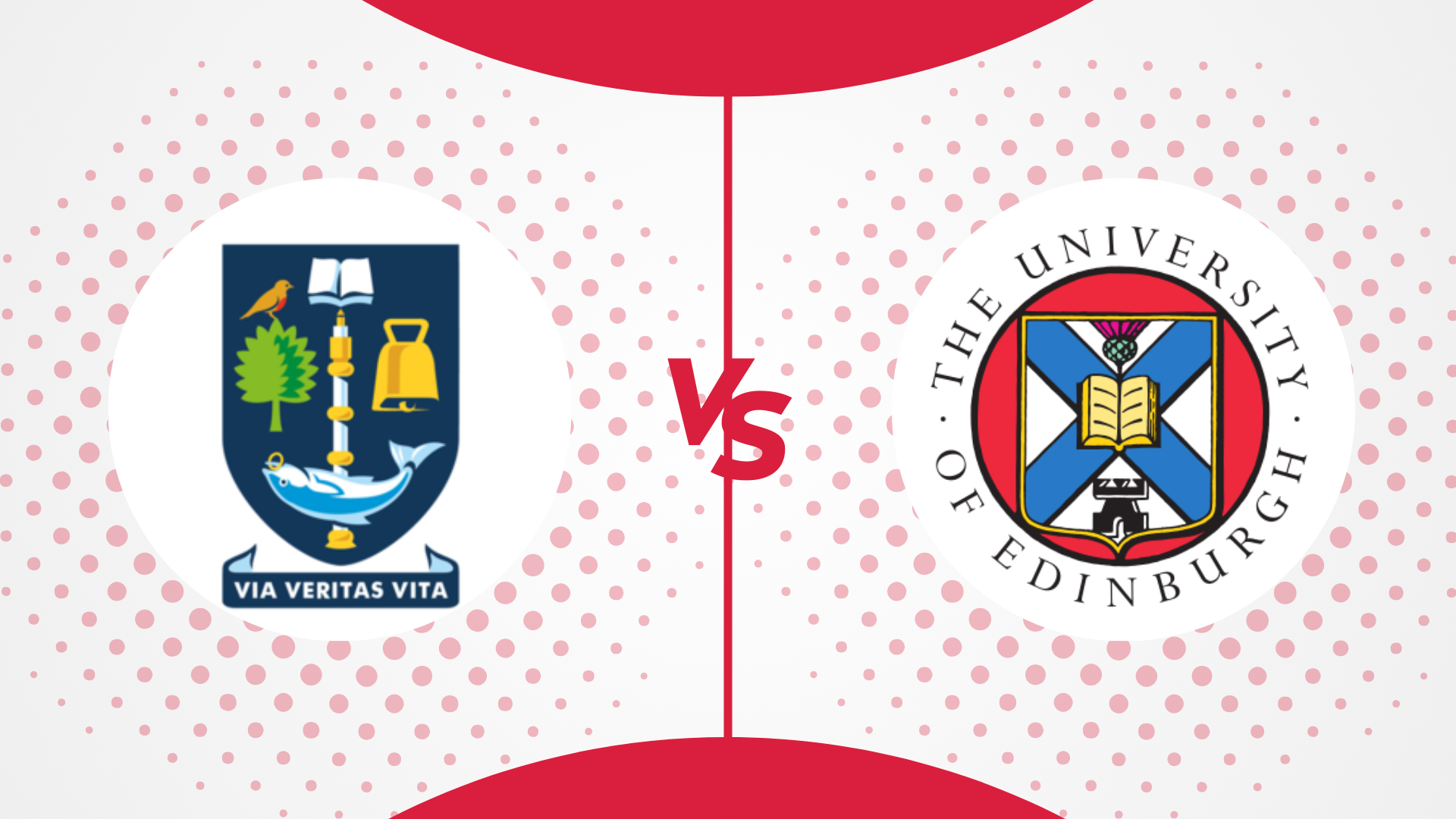
Compare more universities in UK
-
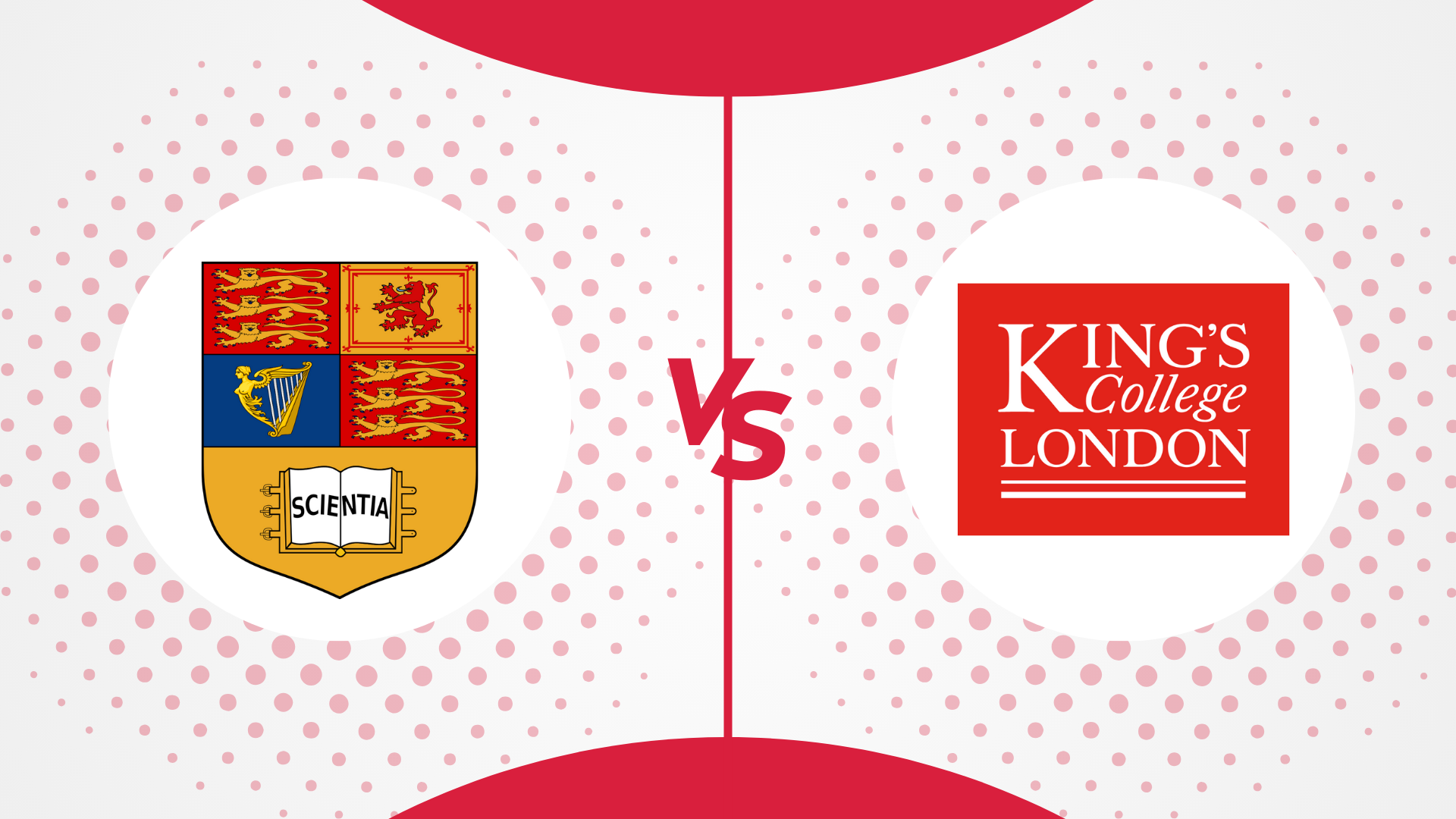
King’s College London vs Imperial College London: How do they Compare [2025]
July 31, 2025 -

London School of Economics vs King’s College: How Do They Compare? [2025]
July 25, 2025 -
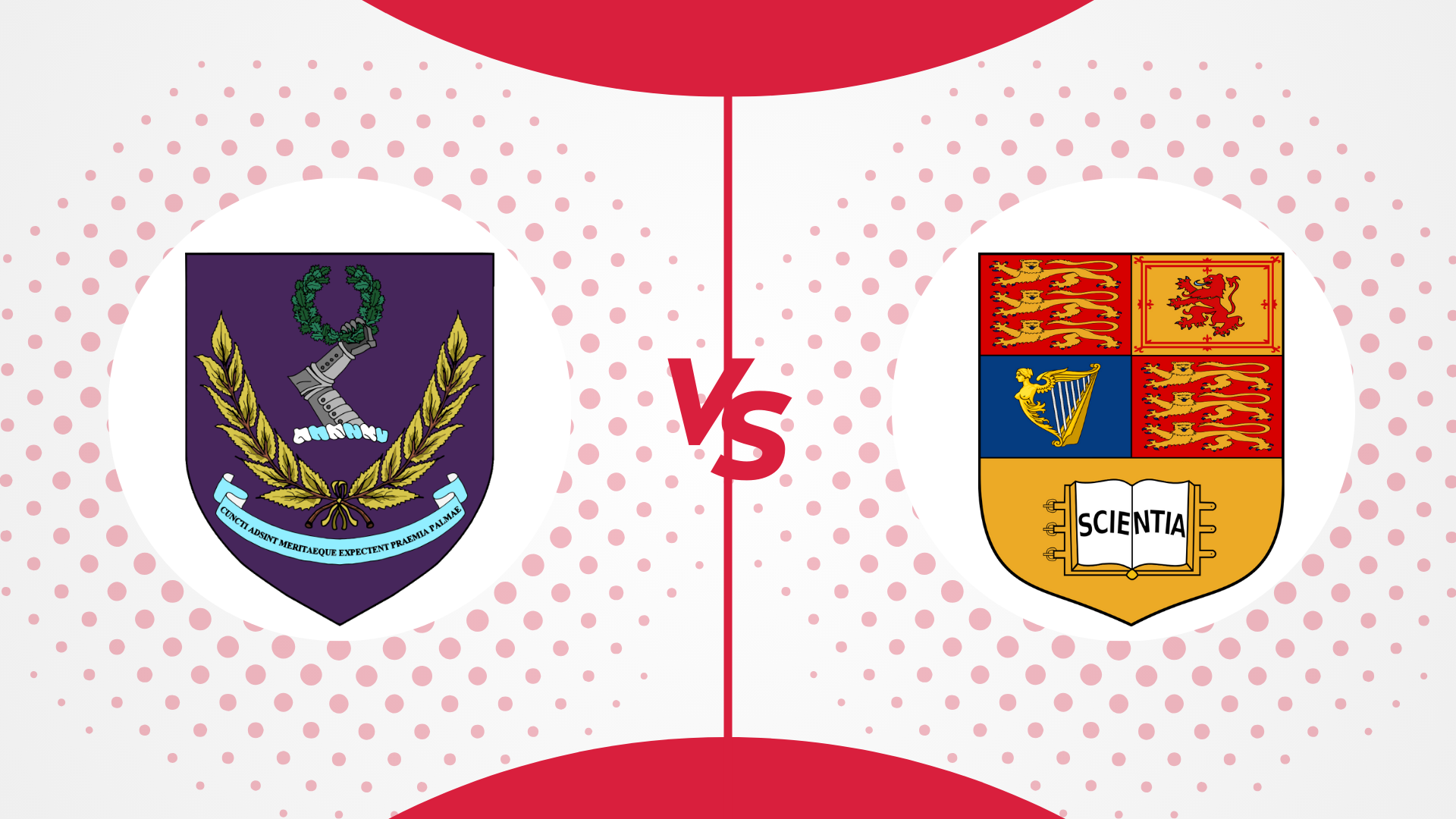
UCL vs Imperial: How Do They Compare? [2025]
July 23, 2025 -

UCL vs LSE: How Do They Compare in 2025?
November 19, 2024 -

Nottingham University vs Nottingham Trent: How Do They Compare? [2025]
November 19, 2024 -

University of Edinburgh vs King’s College London: How Do They Compare? [2025]
November 7, 2024 -

Durham University vs Glasgow University: How Do They Compare? [2025]
November 6, 2024 -

London School of Economics Vs London Business School: How Do They Compare? [2024]
October 26, 2024 -

LSE vs Oxford: How Do They Compare? [2024]
October 8, 2024 -

Durham vs Warwick: How Do They Compare? [2025]
September 27, 2024


















